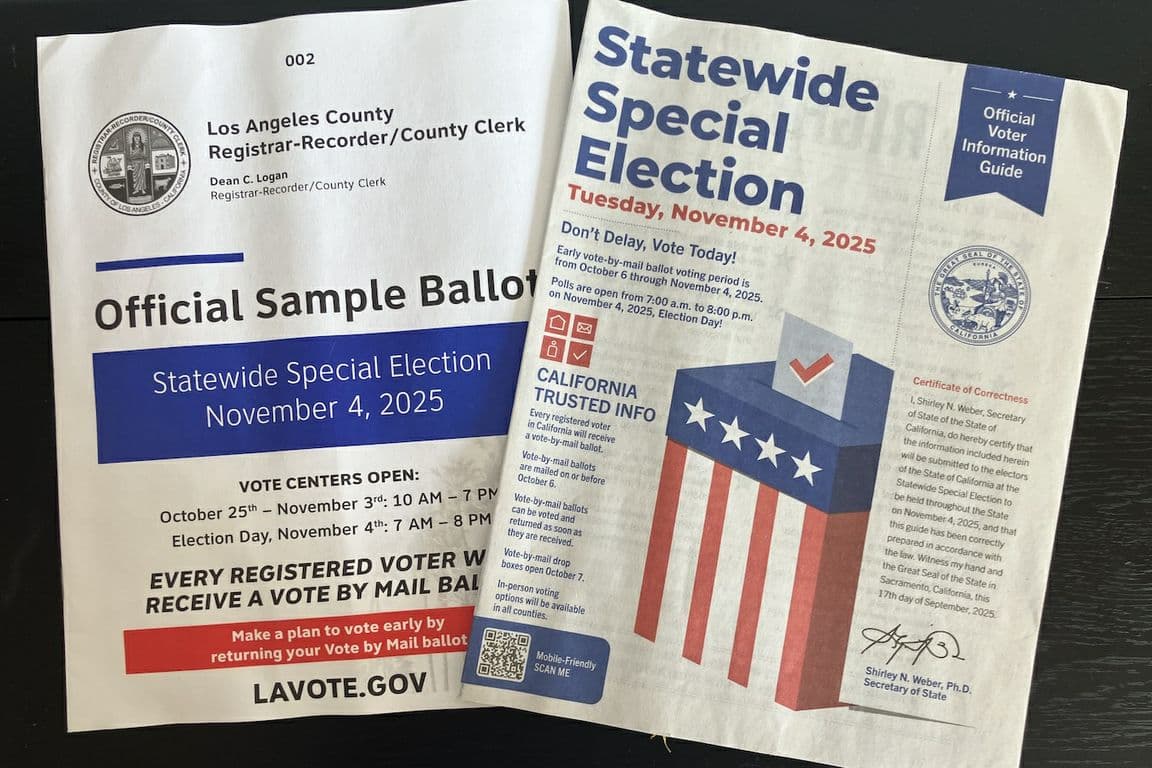California's Proposition 50 Aims for Five More Democratic House Seats, Challenges Independent Redistricting

A contentious ballot measure, Proposition 50, is currently before California voters, proposing to redraw congressional district lines to potentially secure five additional House seats for Democrats. Governor Gavin Newsom has championed the initiative, framing it as a necessary response to partisan gerrymandering efforts in other states. The proposal, however, has ignited significant debate, particularly concerning its potential to temporarily override the state's voter-approved independent redistricting commission.California's congressional and state legislative districts are typically drawn by the independent Citizens Redistricting Commission (CRC), a 14-member body established by Propositions 11 and 20. This commission, composed of five Democrats, five Republicans, and four unaffiliated members, was created to remove partisan influence from the map-drawing process. Opponents of Proposition 50 argue that bypassing this non-partisan body undermines the will of the voters who established it.One of the most striking changes proposed by Proposition 50 involves merging geographically and culturally disparate regions into single congressional districts. For instance, Modoc County, a rural, conservative area in the state's far northeast, would be grouped into the same congressional district (District 2) as Marin County, an affluent, liberal region in the San Francisco Bay Area. As noted in a social media post by Michael Oxford, > "People from Marin County and people from Modoc County have absolutely nothing in common."Residents of Modoc County have voiced concerns that their unique needs and interests, particularly regarding agriculture and natural resources, would be overshadowed by the more populous and politically dominant Marin County. One rancher and county supervisor stated that a representative from the Bay Area "doesn’t get what’s going on on the ground in rural areas at all." This sentiment echoes Oxford's tweet, which claimed, "Marin County will be the only ones represented by that congressman."Governor Newsom and proponents of Proposition 50 argue that the measure is a strategic counter to aggressive gerrymandering by Republicans in states like Texas, which they contend threatens national democratic representation. The initiative would temporarily suspend the independent commission's maps through 2030, allowing state lawmakers to implement new lines. Critics, including some Republicans and independent voters, view this as a partisan power grab that could set a dangerous precedent for future redistricting cycles.The campaign surrounding Proposition 50 has seen substantial financial investment, with proponents raising significantly more funds than opponents. The outcome of the vote is expected to have considerable implications for California's political landscape and its role in the national balance of power in the U.S. House of Representatives.